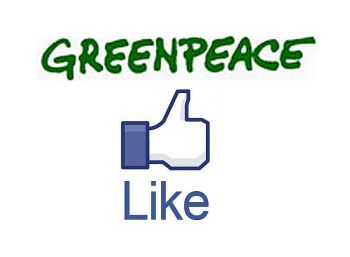Facebook and Greenpeace have buried the hatchet and agreed to work together on the Open Compute Project, an open source initiative to share energy-efficient data centre designs across the IT industry.
The two companies have not seen eye to eye since Greenpeace started a campaign against Facebook’s use of coal-sourced energy by launching a Facebook page entitled “Unfriend Coal”. The new Like situation has come with undertakings on both parts.
Joint initiatives
Greenpeace is putting its weight firmly behind the Open Compute Project by encouraging other companies to join in with the sharing and adoption of the energy-efficient technology. As part of this, it will also help to raise awareness of the “social energy” application designed by Opower, Facebook and environmental advocacy group the Natural Resources Defence Council (NRDC).
The Opower-developed application allows people to see how their energy use compares to the national average and to other participants in the scheme. The software will be made available early this year through Facebook’s Green page,
Facebook’s promise is to adopt a policy of siting its data centres where clean and renewable energy supplies are available and to continue to research new ways to improve data centre efficiencies in conjunction with Greenpeace. Research findings will be shared through Open Compute and both companies will engage in talks with utility providers to encourage them to invest in clean energy for Facebook data centres.
“We will be working with Greenpeace to move everyone closer to a world powered by clean and renewable energy, and to use the Facebook platform to engage people on energy and environmental issues,” Facebook said on its Green page.
Greenpeace’s Unfriend Coal campaign was launched to pressurise Facebook into investing in renewable sources of power for its data centres. This is part of the organisations attempts to lobby the utilities industries through persuading and cajoling their customers to apply pressure.
Facebook decided that its best contribution to improve energy consumption was to share its design for its green Prineville, Oregon, data centre (pictured) with the world through Open Compute.
“Greenpeace and Facebook will now work together to encourage major energy producers to move away from coal and instead invest in renewable energy. This move sets an example for the industry to follow,” said Tzeporah Berman, co-director of Greenpeace’s International Climate and Energy programme.
Greenpeace sees cloud users and providers as a suitable target for its clean energy initiative because the industry is young and growing fast. By persuading providers to establish their new data centres, which use vast amounts of energy, in areas where sustainable methods of electricity generation are available, it will help the environment and increase the efforts of utility companies to source cleaner energy.
Without Greenpeace’s pressure, companies such as Facebook, Google and Apple have included wind and solar power systems to provide part of the power for their latest data centres.






